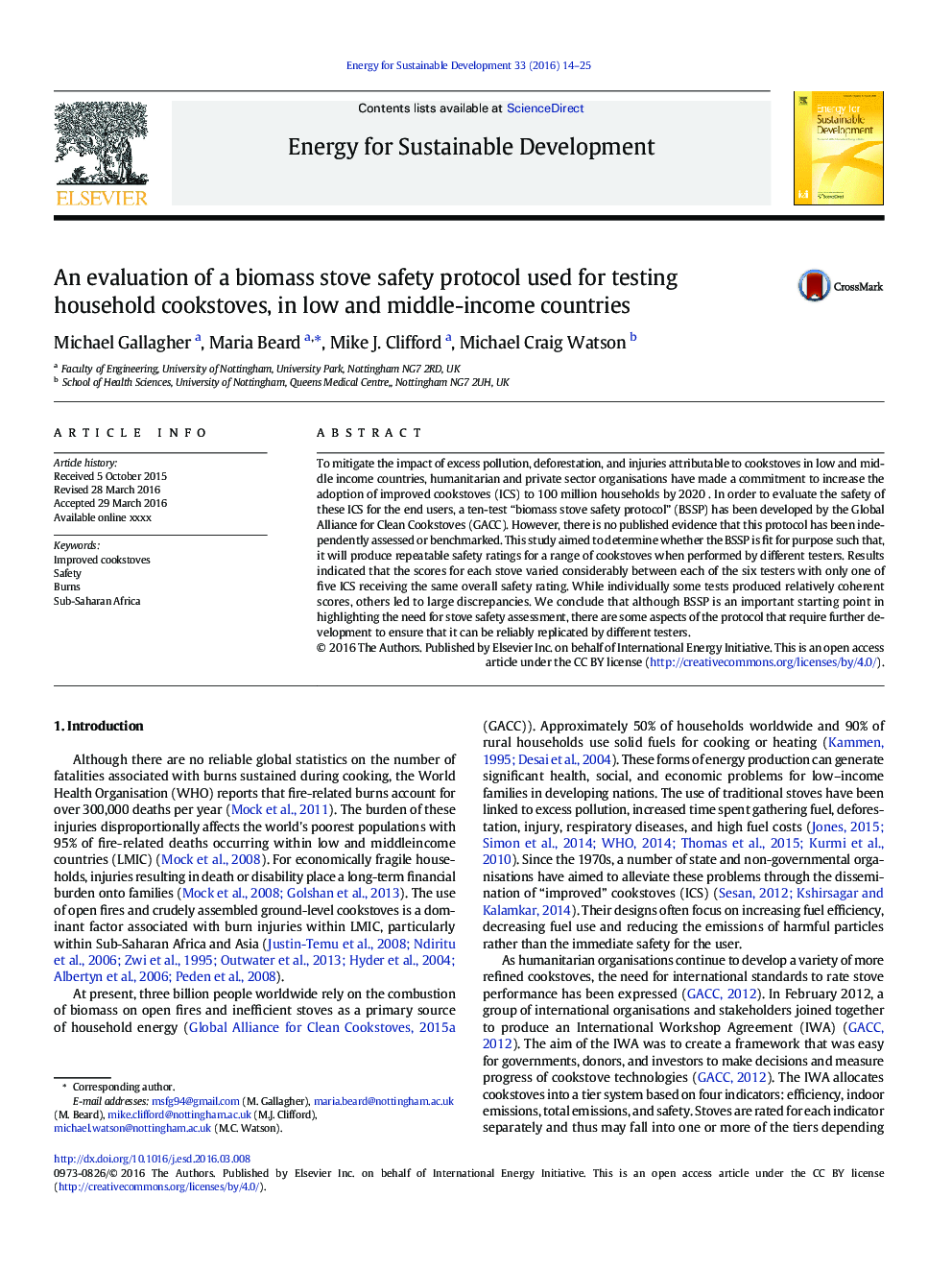| Article ID | Journal | Published Year | Pages | File Type |
|---|---|---|---|---|
| 7453773 | Energy for Sustainable Development | 2016 | 12 Pages |
Abstract
To mitigate the impact of excess pollution, deforestation, and injuries attributable to cookstoves in low and middle income countries, humanitarian and private sector organisations have made a commitment to increase the adoption of improved cookstoves (ICS) to 100 million households by 2020 . In order to evaluate the safety of these ICS for the end users, a ten-test “biomass stove safety protocol” (BSSP) has been developed by the Global Alliance for Clean Cookstoves (GACC). However, there is no published evidence that this protocol has been independently assessed or benchmarked. This study aimed to determine whether the BSSP is fit for purpose such that, it will produce repeatable safety ratings for a range of cookstoves when performed by different testers. Results indicated that the scores for each stove varied considerably between each of the six testers with only one of five ICS receiving the same overall safety rating. While individually some tests produced relatively coherent scores, others led to large discrepancies. We conclude that although BSSP is an important starting point in highlighting the need for stove safety assessment, there are some aspects of the protocol that require further development to ensure that it can be reliably replicated by different testers.
Related Topics
Physical Sciences and Engineering
Energy
Energy (General)
Authors
Michael Gallagher, Maria Beard, Mike J. Clifford, Michael Craig Watson,
